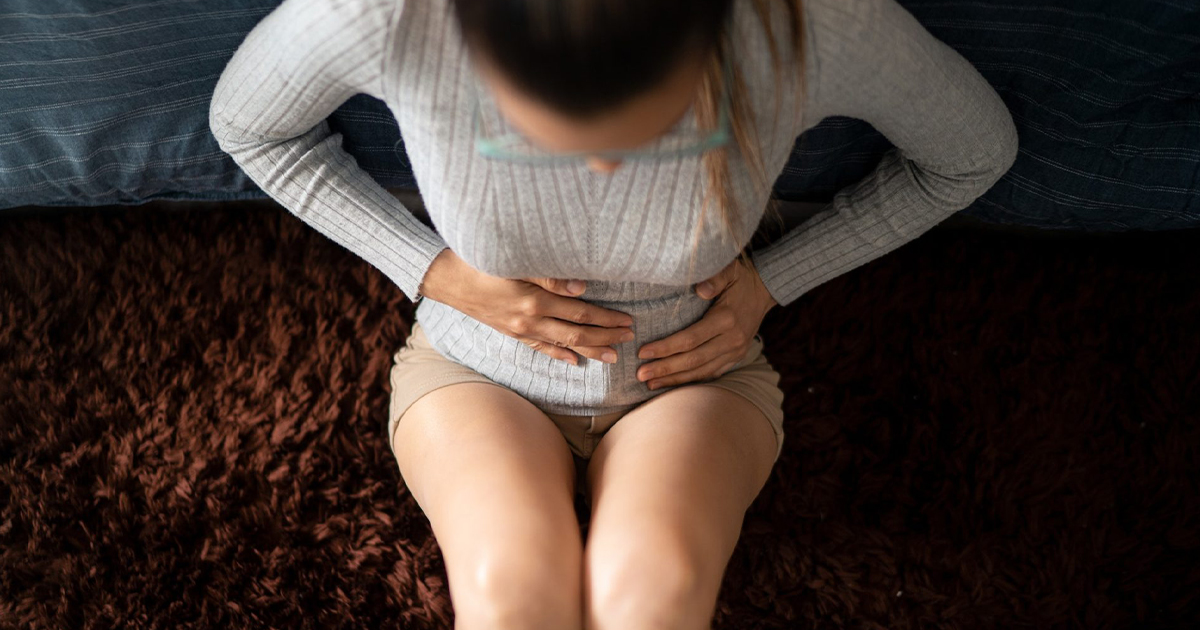Polycystic Ovary Syndrome (PCOS) is a condition where the ovaries produce an abnormal amount of androgens (male sex hormones typically present in small amounts in women).
The name “polycystic ovary syndrome” refers to the numerous small cysts that form in the ovaries. However, some women with PCOS may not have cysts, while some women without the disorder may develop cysts.
In Brief: PCOS
- PCOS is a very common hormonal problem for women of childbearing age.
- Women with PCOS may not ovulate, have high levels of androgens, and have many small cysts in their ovaries.
- PCOS can cause delayed or irregular periods, excessive hair growth, acne, infertility, and weight gain.
- Women with PCOS may have an increased risk of type 2 diabetes, high blood pressure, heart issues, and endometrial cancer.
- Treatment options for PCOS may depend on whether a woman plans to become pregnant. Women planning for pregnancy might take different types of medication.
How Does Polycystic Ovary Syndrome Develop?
Ovulation occurs when a mature egg is released from the ovary to be fertilized by sperm. If the egg is not fertilized, it is expelled from the body during the menstrual cycle.
In some cases, a woman does not produce enough hormones necessary for ovulation. Without ovulation, the ovaries can develop many small cysts.
These cysts produce hormones called androgens. Women with PCOS often have high levels of androgens. This can cause more issues with the menstrual cycle and contribute to many PCOS symptoms.
Treatment for PCOS is typically managed with medication. While this cannot cure PCOS, it can help reduce symptoms and prevent some health problems.

What Causes Polycystic Ovary Syndrome?
The exact cause of PCOS is unknown. However, many women with PCOS have insulin resistance, which means their body cannot use insulin effectively. Insulin levels build up in the body and may lead to higher androgen levels. Obesity can also increase insulin levels and worsen PCOS symptoms.
Genetic factors play a role in PCOS. It is common for sisters or a mother and daughter to have PCOS.
If your mother or sister has PCOS, your chances of having it are higher. Additionally, if you have insulin resistance or are obese, you may be at greater risk.
What Are the Symptoms of Polycystic Ovary Syndrome?
PCOS symptoms may include:
- Irregular menstrual cycles
- Large or multiple ovarian cysts
- Excessive hair growth on the body, including the chest, abdomen, and back (hirsutism)
- Weight gain, especially around the abdomen
- Acne or oily skin
- Male-pattern baldness or thinning hair
- Infertility
- Small skin tags on the neck or armpits
- Dark or thick patches of skin on the back of the neck, armpits, or under the breasts
How Is Polycystic Ovary Syndrome Diagnosed?
Your doctor will ask about your medical history and symptoms. You will likely have a physical exam, including a pelvic exam to check the health of your reproductive organs inside and out.
Because some PCOS symptoms are similar to those of other health issues, additional tests may include:
- Ultrasound: This test uses sound waves and a computer to create images of blood vessels, tissues, and organs. It is used to examine the size of the ovaries and check for cysts. The test can also assess the thickness of the uterine lining.
- Blood tests: These check for high levels of androgens and other reproductive hormones. Your doctor may also check your blood sugar levels and your cholesterol and triglyceride levels.
How Is Polycystic Ovary Syndrome Treated?

Treatment for PCOS depends on several factors, including your age, the severity of your symptoms, and your overall health. It also depends on whether you want to become pregnant in the future.
If you plan to become pregnant, treatment may include:
- Changes in diet and daily activities: A healthy diet and increased physical activity can help you lose weight and reduce symptoms. They may also improve insulin use, lower blood sugar levels, and support ovulation.
- Medications to induce ovulation: These medications can help the ovaries release eggs normally. However, they can increase the chance of multiple births and cause ovarian hyperstimulation, leading to bloating and pelvic pain.
If you do not plan to become pregnant, treatment may include:
- Birth control pills: These help regulate menstrual cycles, reduce androgen levels, and alleviate acne and hair growth.
- Diabetes medications: These are often used to lower insulin resistance in PCOS. They may also reduce androgen levels, slow hair growth, and promote regular ovulation.
- Changes in diet and activities: A healthy diet and more physical activity can help you lose weight, reduce symptoms, and improve insulin use.
- Medications to treat other symptoms: Certain medications can help reduce excessive hair growth or acne.
Living with PCOS:
Some women struggle with physical symptoms of PCOS, such as weight gain, excessive hair growth, and acne. Cosmetic treatments like electrolysis or laser hair removal can improve self-esteem. Discuss the best ways to manage troubling symptoms with your healthcare provider.
Visit our blog to learn more about women’s health and IVF treatments. Click here to visit.

 EN
EN TR
TR
